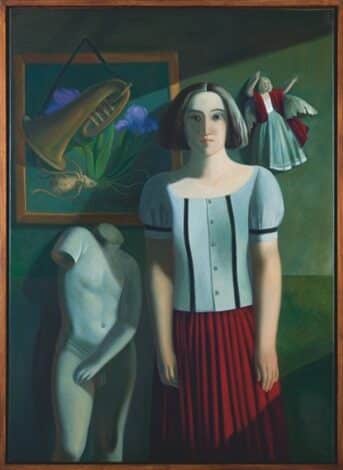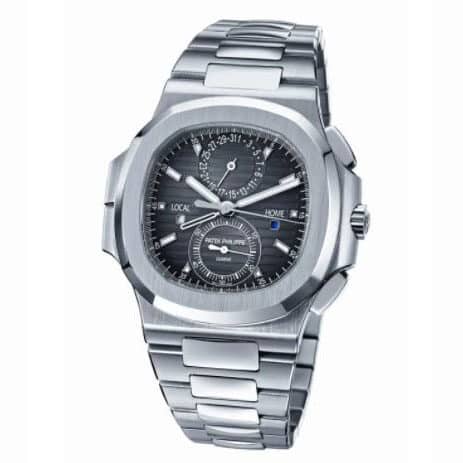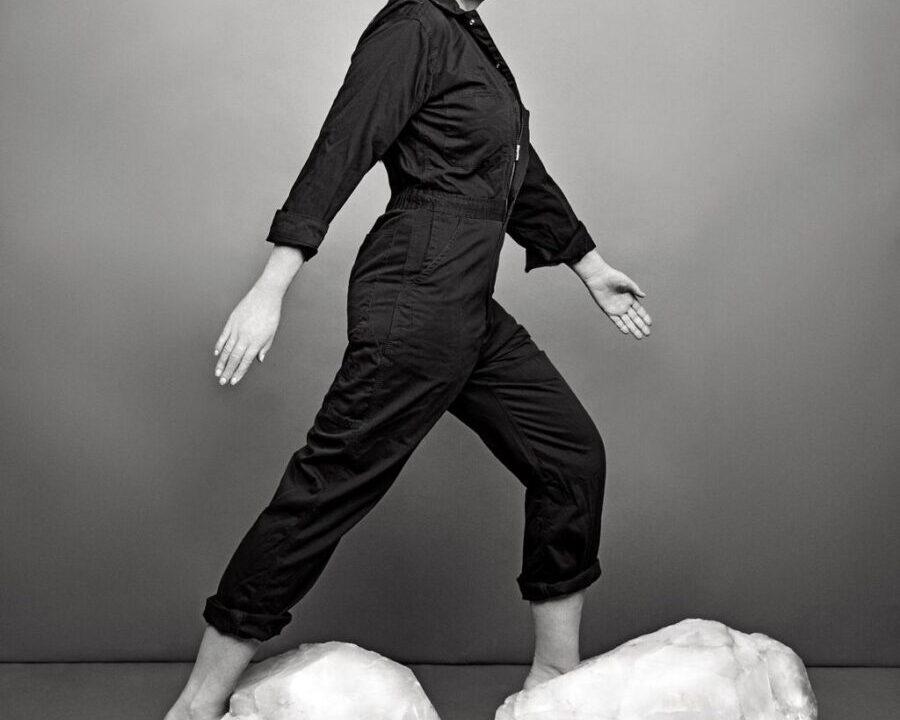The Early Years
Afifa Aleiby is an Iraqi artist, born in 1953 in Basra, a city located in the southern part of Iraq. She began her studies at the Institute of Fine Arts in Baghdad while working as an illustrator for the Iraqi press. Following that stint as a commercial artist, she left for the Soviet Union in 1974 to study and specialize in monumental art at the renowned Suikuv Institute in Moscow. She couldn’t go back to her native country after the completion of her studies because of Iraq’s political situation. She then moved to Italy and later back to Moscow, before settling in Yemen to work for a time as a teacher at the Institute of Fine Arts in Aden, where she also illustrated children’s books and magazines.
Influences
Afifa Aleiby was largely influenced creatively by the various art movements and genres of the 1970s. In reaction to the many social and political tensions of the previous decade, the artistic community of that time was characterized by a desire to expand and reinvent itself. One of the most central movements of the 1970s was Conceptualism, which in art terms means the idea or concept is the most important aspect of the work. Conceptualism emerged as an offshoot of Minimalism, where the work attempts depict the essence, or identity of a subject through eliminating all non-essential forms or features. Further adding to Aleiby’s influences was the experimental, creative portrayal of Process art, which combines the essential aspects of Conceptualism with further reflections on art itself. Most of the emerging artistic figures of the 1960s remained highly influential and admired throughout the 1970s, all of whom were noticed by, and to a large extent, served to pave a solid path for the emergence of Aleiby’s future work.
A few significant global movements that further defined the art styles of the decade include Photorealism, which was initially introduced in the 1960s and reached commercial and critical success in the 1970s. In addition, the emergence of Feminism also had a strong impact on the visual artistic culture.
Towards the end of the 1970s, street art, emerging from graffiti, was starting to captivate the fine art community. Early adopters such as Keith Haring and Jean-Michel Basquiat helped legitimize spray painting and tagging, demonstrating that their artworks could exist at the same time in art galleries and on city walls. As a result, the global reach of street art became extremely influential, representing an ever-expanding form of artistic expression and legitimizing an art scene that allowed emerging artists, such as Aleiby, to fully explore their expressive desires.
The Style of Aleiby
The female figure features prominently in Afifa Aleiby’s art, which developed as her particular style, with influences ranging from monumental art, to a Renaissance type alongside a social realism style. Her expressions are poetic and fascinating, as well as sculptural in form. What the artist attempts to convey through these figures serves as the allure that captures the observer.
Art can be both a personal tool or a collective one. Having lived in several countries, Afifa Aleiby experienced many different cultures, the characteristics of which are drawn upon and often revealed throughout her works. As a result, she has fused collective histories and her personal one, cultural identities and political references to amass a unique and distinctive scope of work. Some admirers of hers feel that her art can sometimes speak louder than politics, and may serve to unite communities.
Aleiby has of late been living and working in the Netherlands, where she keeps contributing to a great deal of cultural activities in support of the Iraqi and international democratic movement in the struggle against terrorism, racism, war and dictatorship. Due to the fact that she has not returned to Iraq in over three decades, her connection to humanity and different cultures has made the harmony of transcending geographical and cultural borders an important theme throughout her work.
As a representative of the artistic and cultural face of the Iraqi civilization, Afifa Aleiby has participated in numerous exhibitions throughout her career, from Baghdad and Moscow to Yemen, Italy, Syria, Lebanon, England and the United States. Selected exhibitions include her solo show The Echo of Time, Kristin Hjellegjerde Gallery, London (2020); Theater of Operations: The Gulf Wars 1991–2011 at MOMA PS1, NY (2019-2020); a Retrospective of her works in the Museum Catharinagasthuis in Gouda (The Netherlands), Re-Existence, Pulchri Studio, Den Haag, The Netherlands (2018); Boushahri Gallery, Kuwait City, Kuwait (2017); Boushahri Gallery, Kuwait City, Kuwait (2014); De Twee Pauwen, The Hague, The Netherlands (2014); Boushahri Gallery, Kuwait City, Kuwait (2010); Gallery Prima Vista, Maastricht, The Netherlands (2008); Galleria Tornabuoni, Florence, Italy (2008); Zink Exposities, Bergen, The Netherlands (2008); Transit Art, Amersfoort, Beirut Biennale, Beirut, Lebanon (2000); Arabic Cultural Centre, Brussels, Belgium (1999); Tjalf Gallery, Amsterdam, The Netherlands (1999); Het Catharina Gasthuis Museum, Gouda, The Netherland (1999); Fortezza S. Francesco. Omaggio a Dilvio Lotti, San Miniato, Italy (1997); Het Veen, Amsterdam, The Netherlands (1997); Sale Topical, City Gallery, Gouda, The Netherlands (1995); Centro culturale Studio Palazzo, Festival dei due mondi, Spoleto, Italy (1993); and Sala dell’ Esposizioni Quartiere No 1, Florence, Italy (1992).
Afifa Aleiby continues to work as a fulltime artist, periodically exhibiting her work in De Twee Pauwen gallery in The Hague, Netherlands, as well as contributing to other galleries, such as Goda in Amsterdam and Prima Vista in Maastricht.
Acquiring a Aleiby Work
If you’d like to add pieces from this renowned artist to your own collection, you can sometimes find them at auctions with some of the leading auction houses in Dania Beach, FL.
Selling the Works of Aleiby
Do you have works by Afifa Aleiby that you are interested in selling, appraising, or cosigning? Call Joshua Kodner today, and ensure you receive the true value of your property.





